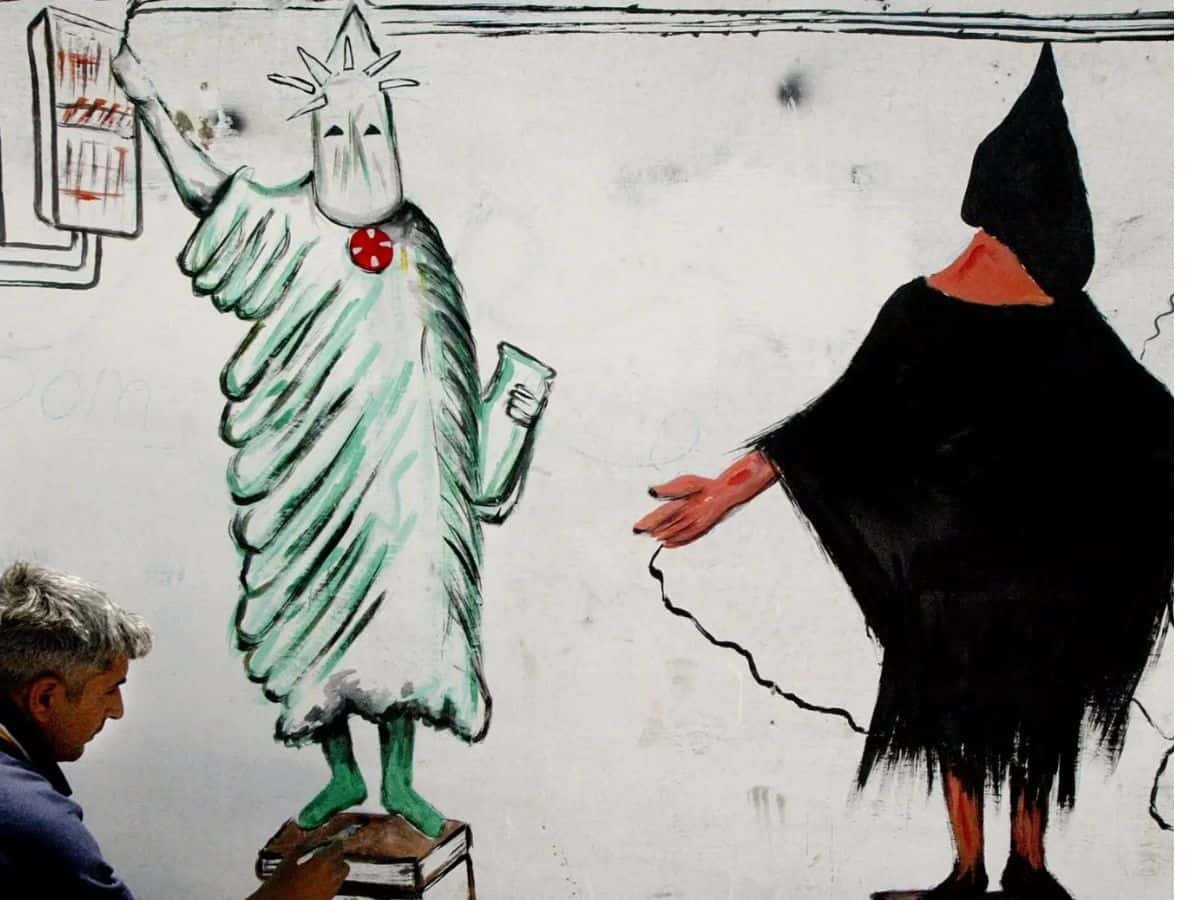
Over two decades on, the United States is yet to provide any redress or compensation to Iraqi prisoners who suffered torture and abuse by its forces at Abu Ghraib and other US-run prisons in Iraq. This was revealed by Sarah Yager, director of the Human Rights Watch (HRW).
According to an HRW report published on Monday, September 25, there are no legal pathways for Abu Ghraib victims to receive compensation, either through the US or Iraqi systems.
Between 2003 and 2009, the US and its coalition allies detained around 100,000 Iraqis following the US invasion of that country. Torture and other forms of abuse by US personnel in Iraq have been documented by Human Rights Watch and other organisations. For years, abuse victims have been coming out to describe how they were treated, but the US government has paid them little attention and offered relief. The Geneva Conventions of 1949, the United Nations Convention Against Torture, as well as customary international law, all forbid the use of torture.
“Twenty years later, Iraqis who were tortured by US personnel still have no clear path for filing a claim or receiving any kind of redress or recognition from the US government. US officials have said they prefer to leave torture in the past, but for many Iraqis and their families, the long-term effects of torture are still a daily reality, “said Sarah Yager.
Dark Abu Ghraib torture cell
Following the 9/11 attack, George W Bush, the 43rd President of the US, declared “war on terror” and invaded Iraq with on 20 March 2003 during the tenure of Saddam Hussein, the fifth president of Iraq.
In the disguise of war against terrorism, the US primarily accused Saddam of developing “weapons of mass destruction” and having ties with Al-Qaeda, which was responsible for the 9/11 attacks.
The invasion affected Iraqi politicians and civilians alike, after which the US military started raiding the homes of local people and detaining them in the notorious jail of Abu Ghraib.
The jail was located 20 miles west of Baghdad where weekly executions took place. The inmates lived in appalling living conditions. At one time, Abu Ghraib housed up to 50,000 men and women crammed into 12-by-12-foot cages that essentially served as human holding pits.
The US succeeded in overthrowing the government of Saddam Hussein in April 2003 and continued their brutal action on civilians in the name of “complete mission.”
Meanwhile, the worst crimes that shook humanity were exposed in October and November 2003.
Prisoner abuse
Evidence suggests that many prisoners were either shot or beaten to death. In one well-known instance, Manadel al-Jamadi passed away from asphyxiation after being hooded, having his ribs fractured, and being shackled so that his arms supported the weight of his body during questioning. Then, apparently, in an effort to conceal the circumstances of Jamadi’s murder, his body was packed in ice. Specialists from the US Army could be seen in photos next to the body giving approval.
Taleb al-Majli, a former prisoner at Abu Ghraib, and three other people (name withheld) were all interviewed by Human Rights Watch between April and July 2023.
Al-Majli told the Human Rights Watch that while he was at Abu Ghraib jail, between November 2003 and March 2005, US forces subjected him to torture and other ill-treatment, including physical, psychological, and sexual humiliation.
He claimed to be one of the individuals in the widely shared photograph from Abu Ghraib, which depicts two US soldiers grinning behind a group of hooded, naked inmates piled on top of one another in a human pyramid. Al-Majli reported that “two American soldiers, one male and one female, ordered us to strip naked. We were stacked on top of one another as prisoners.”
Human Rights Watch documents stated in 2006 that they were not aware of any other jail system in the world that allowed dogs to attack inmates while they were confined to a cell.
20 years of US silence
George W. Bush expressed regret for the “humiliation suffered by the Iraqi prisoners” at Abu Ghraib in 2004. Following that, Defense Secretary Donald Rumsfeld informed Congress that he had discovered a legitimate strategy for reimbursing Iraqi detainees who had been subjected to grievous and brutal abuse and cruelty at the hands of a few members of the United States armed forces. “It’s the right thing to do, and I want to make sure we do it,” he had said.
However, Human Rights Watch has found no evidence that the US government has paid any compensation or other redress to victims of abuse in Iraq, nor has the United States issued any individual apologies or other amends.
Some victims have attempted to file claims under the US Foreign Claims Act (FCA) in order to receive compensation. Foreign nationals are entitled to compensation for deaths, injuries, and property damage resulting from “noncombat activity or a negligent or wrongful act or omission” committed by US service personnel, according to the legislation. It does, however, contain a provision known as the “combat exclusion,” which states that claims will not be paid if the harm was caused by “action by an enemy or US forces engaged in armed conflict or in immediate preparation for impending armed conflict.”
